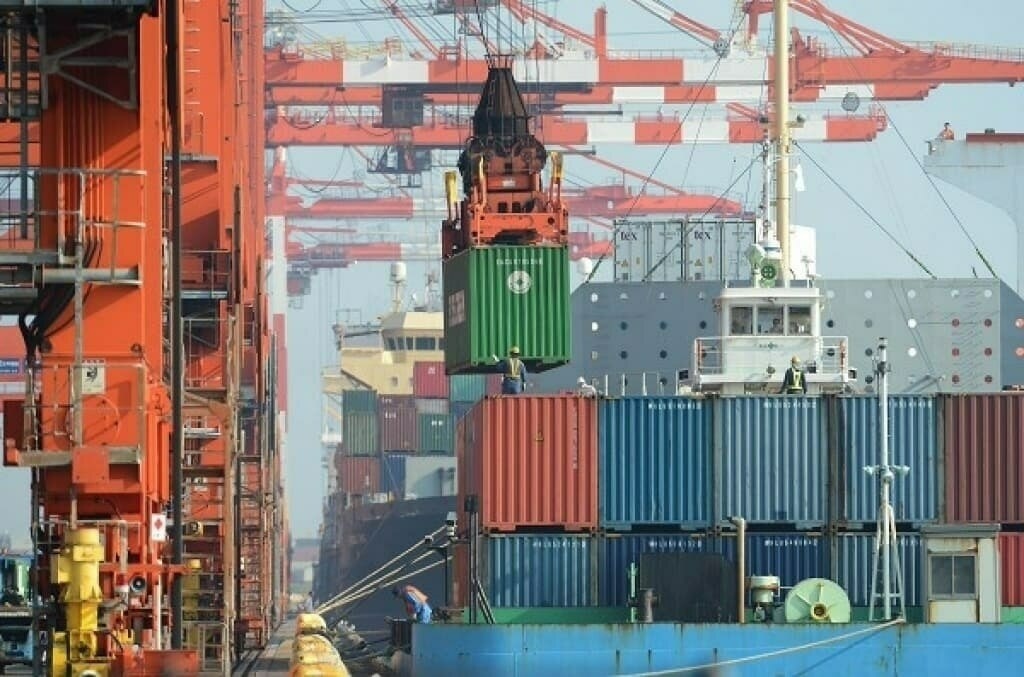The recent meeting chaired by Minister Ahsan Iqbal, alongside the Governor of the State Bank of Pakistan, Jameel Ahmed, brought crucial insights into the role of commercial banks in achieving Pakistan’s ambitious economic growth targets.
Senior banking officials and presidents of commercial banks were also in attendance, emphasizing the importance of collaborative efforts to drive progress under the Uraan Pakistan initiative.
The Uraan Pakistan Initiative: A Vision for Economic Prosperity
Ahsan Iqbal described the Uraan Pakistan initiative as more than just a program—it is a transformative vision for a progressive and prosperous Pakistan.
Central to this vision is the empowerment of small and medium-sized enterprises (SMEs), which hold the potential to significantly bolster export revenues and strengthen economic resilience.
Policy Reforms: The Key to Export Growth
Export growth is at the heart of Pakistan’s economic agenda, with Ahsan Iqbal outlining a target of achieving 6-10 percent annual export growth.
The minister identified key sectors such as information technology, agriculture, mining, manpower export, the blue economy, and cultural industries as areas with untapped potential.
Learning from the Past to Build a Better Future
While acknowledging the challenges Pakistan has faced in achieving economic stability, the minister expressed optimism about the future.
He noted that the country has experienced three significant economic takeoff attempts in the past, which were unfortunately derailed by wars, political instability, and policy shifts.
The Uraan Pakistan initiative represents an opportunity to rewrite this history by fostering a sustainable and forward-looking economic strategy.
The Government’s “Five Es” Development Strategy
Ahsan Iqbal highlighted the government’s commitment to its “Five Es” development framework, which focuses on the following pillars:
- E-Pakistan: Leveraging digital technology to drive economic growth and innovation.
- Environment: Promoting sustainability and addressing climate change challenges.
- Energy: Ensuring energy security and efficiency to support industrial growth.
- Equity: Bridging economic disparities and promoting social inclusivity.
- Economy: Building a robust and resilient economic foundation.
These pillars form the foundation of Pakistan’s long-term development strategy, with commercial banks playing a critical role in realizing these objectives.
Strengthening the Financial Sector
The financial sector is the backbone of any economy, and Ahsan Iqbal underscored the need for commercial banks to take proactive measures in supporting export-driven growth. Key recommendations include:
- Doubling Export Credit Disbursements: Ensuring that exporters have adequate access to financial resources.
- Risk Mitigation Tools: Introducing mechanisms to protect exporters from market uncertainties.
- Digital Trade Finance: Leveraging technology to streamline trade processes and reduce transaction timelines.
Challenges on the Road to Progress
Despite the promising prospects outlined during the meeting, Ahsan Iqbal acknowledged the significant challenges that need to be addressed. These include:
- Political Instability: Creating a stable political environment is crucial for attracting investments and fostering confidence among stakeholders.
- Low Literacy Rates: Enhancing education and skills development is essential for building a competitive workforce.
- Rising Energy Costs: Addressing energy inefficiencies and adopting renewable energy solutions can help reduce production costs and improve competitiveness.


